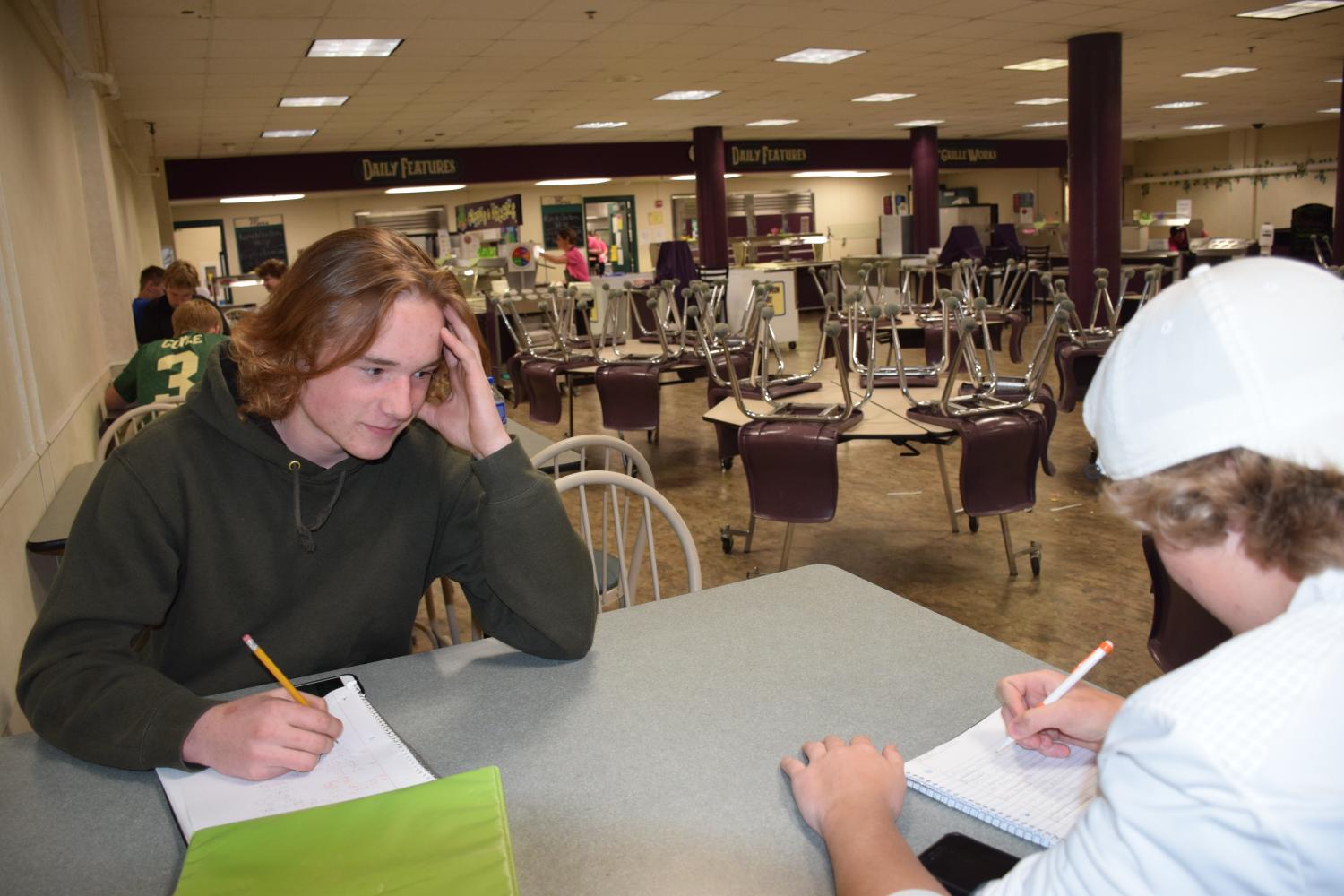Cheating in the school system
Junior Tyler Wencl and Senior Johnny Swenson staging an example of cheating
Cheating, an inevitable virus that festers in every school system, can easily be identified as a prevalent issue. In a Magnet conducted poll, 91 percent of OHS student responses said that they have cheated in school. Cheating can be found in many forms, more than you would think. Whether it is on a test or a homework assignment, there are ways to improve scores on either. Cheating can also be seen in more forms than purely copying answers. In this age of technology answers to whole assignments, and even tests, can be found online.
Often times students beg the question, are we entirely to blame? One benefit to having a large circle of friends in various grades is that the older students have the experience to mentor the younger ones. Underclassmen who are eager to succeed in their classes look up to the older students with admiration, hoping for advice. When they find students who can be positive influences on them, academic integrity can be learned and handed down.
However, often times younger students get a little more than they asked for. They find that their older friends still have the exact same test, study guide or homework from their time in class as they are currently working on. It is all too easy to simply pass on the already completed assignment to plagiarize. Without a fresh curriculum, teachers may have a harder time discerning the difference between genuine and forged work. Even self-motivated, ambitious students ask themselves, why not save some time even knowing full well they would be cheating? Let’s be clear- teachers are expecting you to do the work. While this is no doubt an ethics issue within each student, more precaution could be taken by teachers such as collecting tests, quizzes and essays to secure authentic work.
Technology also heavily influences the cheating patterns of students. Programs such as Quizlet, SparkNotes and others can be a very useful tool for students to use when studying for upcoming exams. However, as with any sharp tool, often times it can be used incorrectly. SparkNotes allows students to read an abridged summary of various texts often used in classrooms. This is a great way to get a refresher of what was read to jog the memory. However, this can evolve into cheating when students neglect the assignment completely, going straight to SparkNotes for a quick and easy way to complete homework. It is enough to fake your way through the class discussion.
Quizlet is another helpful resource for students to study flashcards on every subject out there before exams. However, students sometimes can stumble onto entire exams with the answers already filled in word for word. Why is this? If common curriculum in classes are making for similar tests and if teachers often share exams with each other online on sites like Quizlet, then students have a tempting source for their A. This is understandable considering the hectic schedule that a high school teacher has, but can students really be blamed when they unknowingly come across an exam they have not taken yet? Should teachers create their own tests instead of using one’s found online? Regardless, technology is making it easier for students to cheat and plagiarize.


